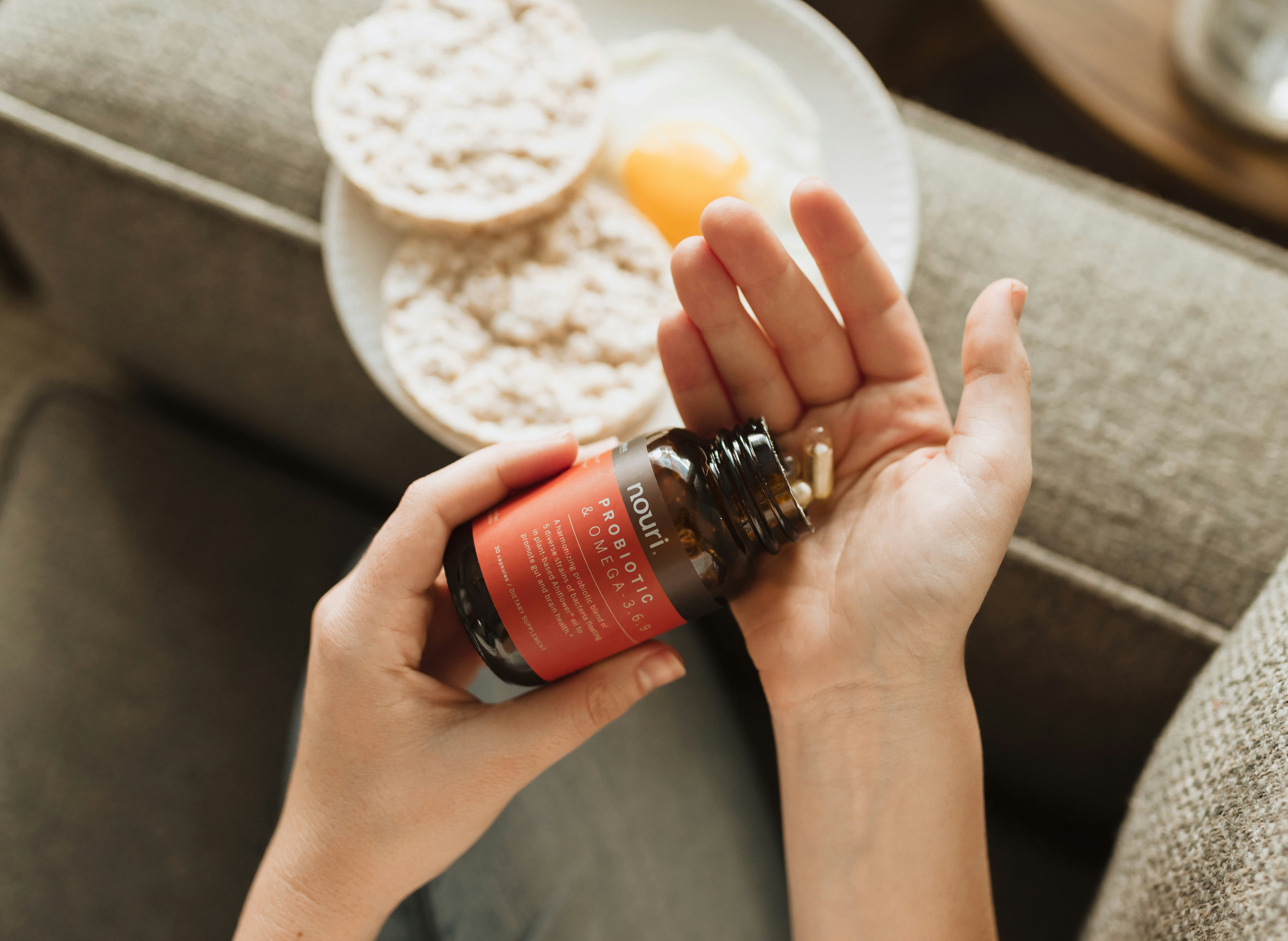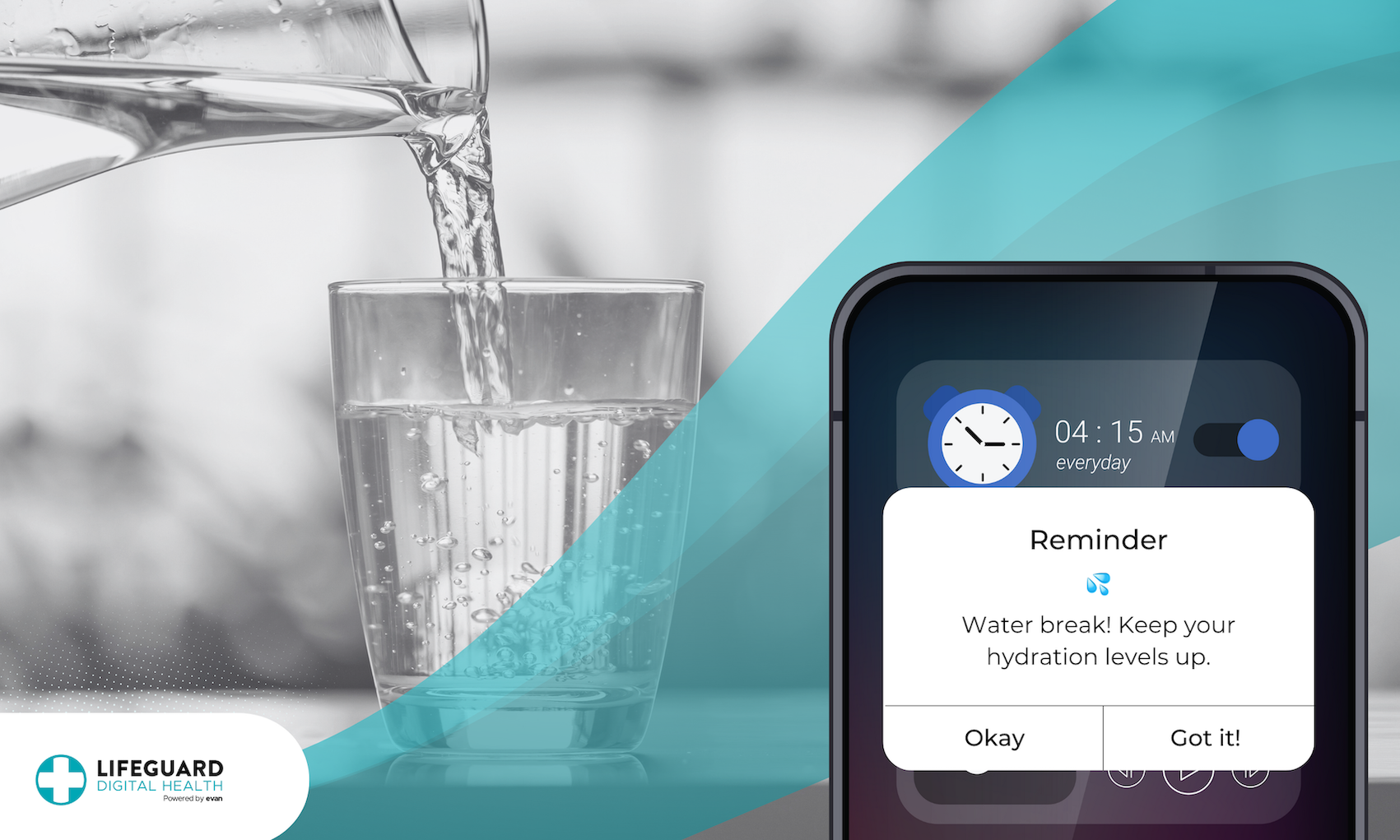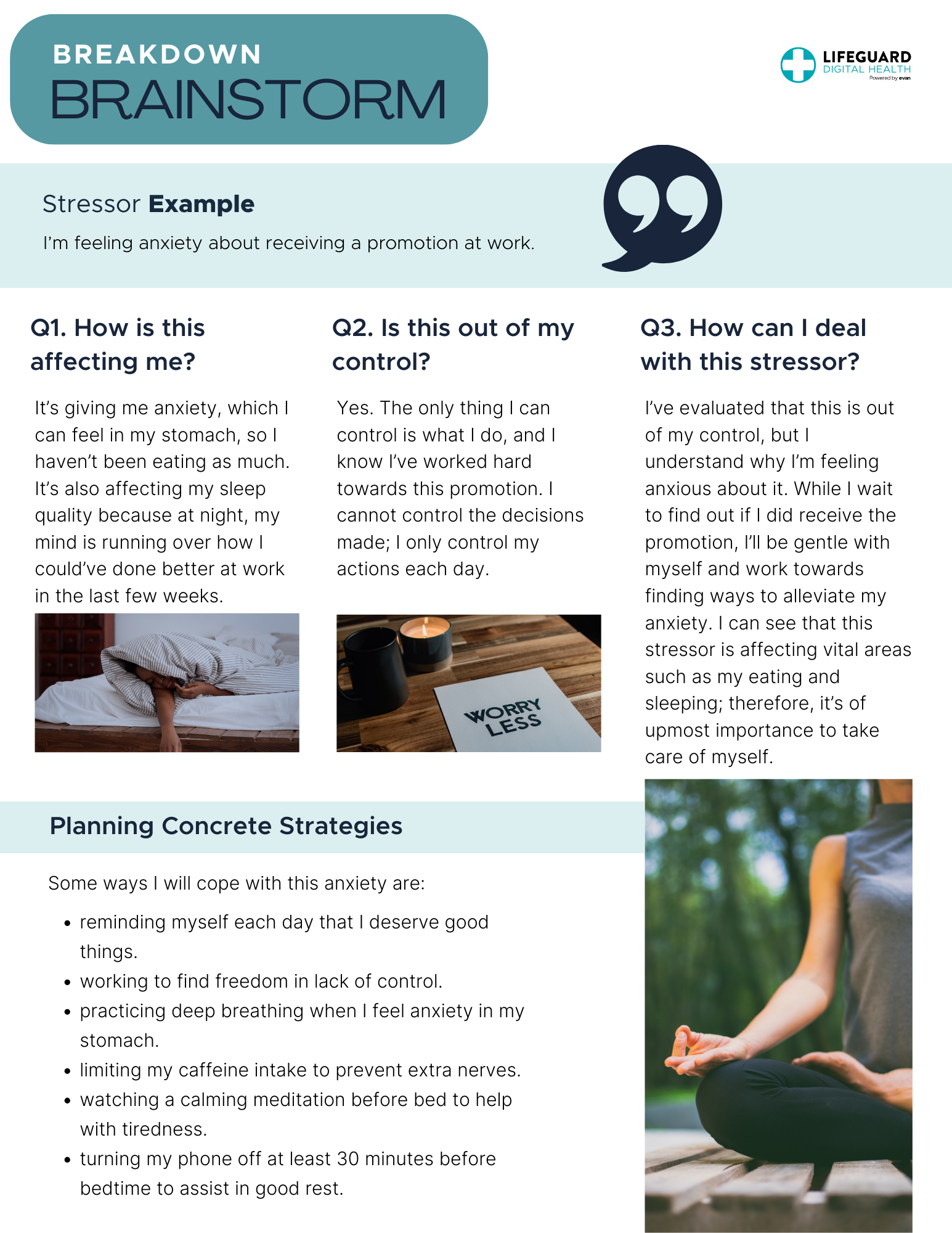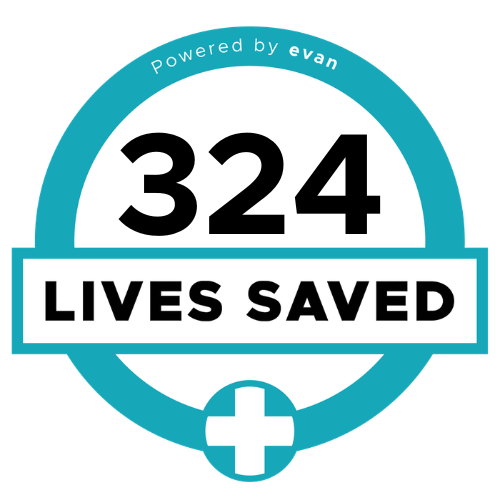
11 Mar Declutter Your Mind and Refresh Your Body
How Spring Cleaning Principals Can Vastly Refine Your Well-Being.
Written by Bryn Hardy, Lifeguard Digital Health
A New Take on Spring Cleaning
Freshly bloomed flowers, morning dew in the air, rain on your skin, and beautiful colours all around; can you predict which season we’re describing? You guessed it, spring. After a cold, dark winter, spring seems to be the exact boost of morale we’re all looking for. It represents rejuvenation and freshness, which is precisely one of the ways spring cleaning was born. As MD Franchell Hamilton stated in a Psychology Today article, “If Mother Nature knows it’s time for a fresh start, maybe this is a hint we should do the same.” What better time to refresh your space than the season of new beginnings? The pressure of vision boards and yearly goals during January can also be overwhelming, whereas spring cleaning may feel less intimidating. For some who haven’t set out on their aspirations yet or had a busy New Year’s season, spring cleaning is a second chance to feel a sense of productivity at the beginning of their year. This is because it’s not about adding goals to your plate – it’s about taking inventory and decluttering.

Spring cleaning is not a new concept. It has a long history with origins dating back to 3000 BC, and in the West, it became a mainstream custom by the 1970s. March is the first month of this season, and it’s around the time people start spring cleaning their homes and purging clutter. What we don’t hear being discussed as often is why not spring clean ourselves? For example, what do YOU want to shed off your shoulders this spring, what internal issues do you want to tidy up, and what is currently cluttering your mind? In this article, instead of discussing ways to refresh your home, we share doable ways to spring-clean your mind and body. The theme of the ideas shared is that they focus on nourishing your basic human needs, so you are fighting weight to do anything your heart desires this year.
Personal Inventory
As mentioned, the idea of spring cleaning has been around for centuries. What’s more new is the concept of spring cleaning ourselves, not just our space. Self-care has become a phenomenon in the last few years, with many people focusing on it daily. Still, the encompassing message behind these necessary actions is sometimes lost. What has the potential to be missed is an overall check-in on your body and mind as a whole so far in the year. Spring cleaning ourselves focuses on overarching themes and patterns and takes a personal inventory of oneself. You may ask what a personal inventory is and although it’s not a word found in the dictionary, it’s an important one to us. It refers to, in simple terms, checking in with yourself. This concept is under the umbrella of self-care, but it’s a more comprehensive overview of yourself over the last few months.
Life is overwhelming, so, understandably, sometimes we feel like we’re just making it through one day to get to the next and survive. But we all deserve a healthy quality of life. To achieve that, you have to be honest with yourself and take the time to recognize if you’re mindlessly flowing through your day-to-day, not thinking about how you could improve your satisfaction with life in general. If this personal inventory idea is new to you, start by asking some questions to gauge where you are. For example, “What is currently impacting me negatively?”, “How am I feeling when I wake up in the morning?” “What could I adjust within my body or mind to be the version of myself I’m working towards?” “What are some things I feel are currently holding me back?” or “Is there anything that’s been weighing me down this year?”. These questions are meant to inspire your brain and exemplify what we mean by taking a personal inventory. If you were spring cleaning your house, you would most likely take a mental tally of what you have, such as clothes and household supplies. You would donate and throw away anything that’s adding unnecessary clutter or isn’t needed. This same concept is what we’re applying to ourselves. We take inventory and check in on what’s going on for us, then “declutter” or get rid of what does not serve us and focus on what does.

Keeping It Simple
A personal inventory is just that, personal. Therefore, each person may have different things they notice or are focusing on, and all of them are equally valid. As a general starting point, we’ve created two categories: body and mind. Focusing on these simple concepts may help if you don’t know where to begin. Your body and mind are arguably the two most essential things in your life, and their healthy functionality allows you to be your best self. What’s fascinating is that although we learn to take care of these things, their importance can fall to the side as we get older and busier. Being adults, focusing on our body and mind is arguably more important than ever. Suppose you do turn your attention to overall health needs. In that case, it would leave you in a better position to deal with everything else that comes with existing in this world. The quote, “No one conquered the world without first conquering the first minute of their day,” attributed to Té V. Smith, speaks perfectly to this concept. The quote points to the general importance of building a strong foundation or starting point before achieving success. In this case, the foundation is you. The following paragraphs will explore some strategies for building that foundation. These suggestions are a fantastic starting point, no matter who you are.
Nourishing Your Body:
Regulate Your Sleep
You are not yourself without a good sleep schedule. While sleeping, our bodies get the time to heal and replenish themselves, along with a load of other crucial things. Sleeping is essential in regulating our moods and hormones, supporting our immune system and insulin levels. As humans, we need three things to survive: food, water, and sleep. Some of us take how vital our sleep quality is for granted, but it’s never too late to try to improve it. These are two scientifically proven ideas that, if implemented, could make a world of difference in your sleep.
-
- Set the Environment. One of the best ways to fix your sleep schedule is to set your environment for sleep. Controlling the temperature and planning your exposure to light are two ways to do this. When exposed to light, your brain stops producing melatonin (the sleep hormone); this makes you feel awake and alert. Darkness tells your brain to make more melatonin, so you feel drowsy. Based on this science, exposing yourself to light in the morning could help you wake up and feel less groggy. Try opening the curtains, taking a walk, or relaxing on the porch in the morning. At night, prime yourself for sleep by turning off or dimming bright lights and avoiding glowing electronic screens from computers, smartphones, or television. Electronics emit something called artificial blue light, which interferes with melatonin production towards bedtime. The National Sleep Foundation also recommends sleeping at a bedroom temperature of about 15-19 degrees Celsius. You may want to go further in setting your environment by getting a diffuser with calming smells, a fan, or even a white noise machine.
- Set the Environment. One of the best ways to fix your sleep schedule is to set your environment for sleep. Controlling the temperature and planning your exposure to light are two ways to do this. When exposed to light, your brain stops producing melatonin (the sleep hormone); this makes you feel awake and alert. Darkness tells your brain to make more melatonin, so you feel drowsy. Based on this science, exposing yourself to light in the morning could help you wake up and feel less groggy. Try opening the curtains, taking a walk, or relaxing on the porch in the morning. At night, prime yourself for sleep by turning off or dimming bright lights and avoiding glowing electronic screens from computers, smartphones, or television. Electronics emit something called artificial blue light, which interferes with melatonin production towards bedtime. The National Sleep Foundation also recommends sleeping at a bedroom temperature of about 15-19 degrees Celsius. You may want to go further in setting your environment by getting a diffuser with calming smells, a fan, or even a white noise machine.
-
- Prioritize Daily Movement. Aside from the general health benefits of exercising that are very worthwhile, research shows that regular exercise can also help you sleep better. If you struggle with feeling tired at bedtime, physical activity can aid in that issue. Most of your bodily tissue, including skeletal muscle, is linked to your biological clock. So, when you work out, the muscle responds by aligning your circadian rhythm. Exercise also helps you sleep better by promoting natural melatonin production. Aim for 30 minutes of moderate cardiovascular activity daily. If you typically exercise in the evening, do it at least one to two hours before bedtime, as evening exercise can do the opposite and overstimulate your body before sleeping.
Learn to Balance Your Gut
Did you know that your gut is connected to multiple aspects of your health? You may have heard some discussion about this in the last few years as it’s definitely become a popular topic. This is due to a significant increase in research and understanding of its function, as well as its vast role in our overall well-being. When referring to gut health, we’re really referring to your gut microbiome. This is the community of organisms in your gut (including bacteria, viruses, and fungi) that work together to keep you healthy. The neurotransmitter Serotonin, known as the happy hormone found in the brain, is also found in your gut! Serotonin is a key player in regulating our emotions and behaviour. Making sure your production levels are normal is of utmost importance, as a lack of Serotonin can be a contributing factor to issues such as mood changes, depression, anxiety, difficulty with functions such as sleep and memory, gastrointestinal symptoms, and movement issues. If you take good care of your gut, you can expect other benefits such as better moods, improved cognitive function, reduced internal and external inflammation, clearer skin, and overall hormone balance. The best ways to start taking care of your gut are:
-
- Eating prebiotic foods: Prebiotics are a type of fibre that stimulates the growth of healthy bacteria. Prebiotic-rich foods include artichokes, bananas, asparagus, oats and apples.
- Adding more fibre to your diet.
- Taking probiotic supplements.
- Limiting your intake of artificial sweeteners and syrups.
- Eating fermented foods such as yogurt, kefir, and kimchi.
- Limiting your intake of highly processed foods such as fast food and sugary drinks.

Work On Your Water Intake
Our bodies are made up of 75% water; crazy, right? You can imagine that if we’re made of that much water, our intake must be important. The 75% doesn’t stay there without effort. During everyday activities and functions, water is lost by the body, so you must replenish it to keep the proper levels intact. Our whole lives, we’re told to drink water or how many cups we should have daily, but do you follow this? Parts of your body rely on water, such as your circulatory, brain, and digestive systems. On top of this, getting your daily water intake can improve your skin barrier, regulate your temperature, keep your hormones in check, and aid in your blood pressure. The recommended amount of water for adults is about thirteen cups a day. This number sounds like a large amount, but broken down, it’s doable. Start with aiming for eight cups a day – that’s about three or four water bottles. Keep in mind, if you’re coming from drinking barely any water, be proud of yourself for getting even two cups in; you can always build on your progress. Some water tips to help yourself reach this goal are left below.
- Purchase a water bottle you genuinely like and bring it everywhere.
- Drink a bottle of water before any other beverage in the morning.
- Set a phone reminder during your day.
- Have a bottle of water between every other drink you consume during the day.
- Keep your water bottle beside your bed.
- Find a healthy additive for your water if it helps you drink more.

Nourishing Your Mind:
Pursue What You Love:
Studies have shown a direct correlation to having hobbies and better well-being. An article published by Harvard Medical School in 2024 reported better health, more happiness, fewer symptoms of depression, and higher life satisfaction when a person pursues a hobby in their free time. This particular study being referenced was observational and doesn’t necessarily prove that hobbies caused people to be healthy and happy. What it does prove, researchers say, is that hobbies such as arts and crafts, games, gardening, volunteering, or participating in clubs involve creativity, sensory engagement, self-expression, relaxation, and cognitive stimulation, which are linked to good mental health and well-being. Plus, participating in hobby-related groups can provide a source of connection.
Think of an activity, game, craft, something you do in your free time, or anything that feeds your soul and makes you happy. It doesn’t matter what anyone else thinks of this activity. It’s about how it makes you feel; nothing is a “stupid” idea. Set aside an hour or two minimum in your week to dedicate some time to whatever you’ve chosen. If you need some help – take a moment to consider your passions. What makes you smile? What hobby do you lose yourself in? What thing could you do all day and not get bored? Once you’ve determined some answers, permit yourself to pursue your joy. A great strategy to start is by writing a list of your favourite things you used to do as a child or young teen; this can be a way to investigate what sparks genuine joy in you.
Breakdown Brainstorm
We all have things that stress us out, but do we take the time to break down solutions for them? Challenge yourself to do this by writing down a list of things, big or small, that are currently weighing on you. From there, go down your list and attempt to create step-by-step solutions for each stressor. When we say “solutions,” we don’t mean the goal is to solve all your problems; that may take more than a pen and paper. We mean creating small ways to alleviate the stress symptoms from your shoulders. Due to many stressors being out of our control and not having a quick fix, we can sometimes feel helpless with our anxieties. So, how can we cope smartly in the meantime? Our suggestion for finding those answers is this breakdown brainstorm. The questions you ask yourself may differ depending on what you’re breaking down. Still, the goal is to walk away with concrete action steps. Don’t forget to be gentle with yourself through this process and validate your feelings. We’ve included an example of what your breakdown brainstorm could look like.

Eat Foods Friendly to the Brain:
Your brain is one of the most complex working parts of your body. Even when you’re asleep, your brain keeps you breathing and your body running. The foods you consume become building blocks for your brain; therefore, nourishing your brain can be a fundamental key to setting yourself up for success. When it comes to goals you may want to check off this year, set yourself up by first focusing on nourishment for your brain, the mastermind behind your achievements. An unnourished brain can only do so much; being mindful of its health means creating a strong foundation for everything else in your day-to-day and your future. Below are some foods that can boost your brain and help fight against depression, memory fog, mood changes, and cognitive decline.
- Leafy greens like kale, spinach, collards, and broccoli are rich in brain-healthy nutrients like vitamin K, lutein, folate, and beta-carotene.
- Fatty fish are abundant sources of omega-3 fatty acids – healthy unsaturated fats vital to brain function. Choose fish varieties low in mercury, such as salmon, cod, canned light tuna, and pollack. If you’re not a fan of fish, ask your doctor about taking an omega-3 supplement, or choose other omega-3 sources such as flaxseeds, avocados, and walnuts.
- Berries are a great snack, and research shows that flavonoids, the natural plant pigments that give berries their brilliant hues, also help improve memory.
- Nuts are excellent sources of protein and healthy fats; both are great for your brain.
Social Media Awareness
Do you pay attention to how much time you spend on social media? Many don’t and, therefore, don’t see the extra time they may have if they attempted to limit this habit. A social media break is a simple way to give yourself the time and space to think about/do other things and feel less overwhelmed. The media constantly floods us with ideas, opinions, news, stories, emotions, and information. Of course, it’s a valuable tool, but it’s in your best interest to give yourself a break from time to time or to start limiting your screen time per day. Many fall victim to “doom scrolling,” a newer term that’s become relevant based on our current society. It refers to mindlessly spending excessive time consuming large quantities of negative news on the internet and social media. The concept was adopted around 2020, particularly in conjunction with the COVID-19 pandemic. A healthy break from social media is not a new recommendation. It may even seem cliche, but it’s more important now than ever. Taking yourself away from the online hustle and bustle, even for a small allotted amount of time, makes a genuine difference you can feel.

On the other hand, when you use social media to relax, what can you replace it with? Taking away an unhealthy form of coping and not adding something healthier to replace it is like taking a leg away from a table and assuming it will balance; you need to replace the missing piece. So, what can you do instead of doom-scrolling to relax and fill time? Below are some suggestions.
- Listen to a podcast and take a walk around the block.
- Read a book and drink a soothing beverage, like tea, coffee, or hot chocolate.
- Put on music and spend time curating playlists/a playlist for yourself.
- Draw yourself a bath and set the mood with candles or diffuse some essential oils.
- Try yoga or meditation.
- Try setting out on a creative endeavour, such as crafts or doodling.
- See a movie in theatres or set up a movie night at home.
- Bake or cook something you’ve always wanted to try.
- Play with your pet or do an enriching activity with them (like a game with treats).
- Play with makeup for fun.
Celebrate The Little Wins
We live in a world that focuses on both self-care and mental health, as well as productivity and success. When you find yourself wrapped up with either side, simplify things for yourself and get back to the basics. Focus on the upkeep of your body and mind and keeping their functionality in top shape, as it will leave you in a better position to problem-solve in other areas. You may be shocked at how putting effort into these simple aspects of ourselves can improve other, more complicated issues in your day-to-day life. Besides helping to tackle problems in our lives, taking care of our bodies and minds leaves us as better versions of ourselves when working towards our goals and dreams. Sometimes, we forget that setting yourself up for success usually starts small. A personal inventory, or “spring cleaning” yourself, allows you to break down what’s taking up space in your life and what’s currently affecting you. Then, you can brainstorm how to truly improve your quality of being in simple ways. Although this may be a new concept, it could be a productive activity to implement. If you find this process helpful, make it a quarterly check-in instead of something solely reserved for springtime. In general, the most important thing to keep in mind while setting goals, reflecting, or planning is that simple things matter, and you should be proud of achieving consistency with them. If you take one thing home from this article, let it be the Té V. Smith quote; “no one conquered the world without first conquering the first minute of their day.”

Written by Bryn Hardy, Lifeguard Digital Health


